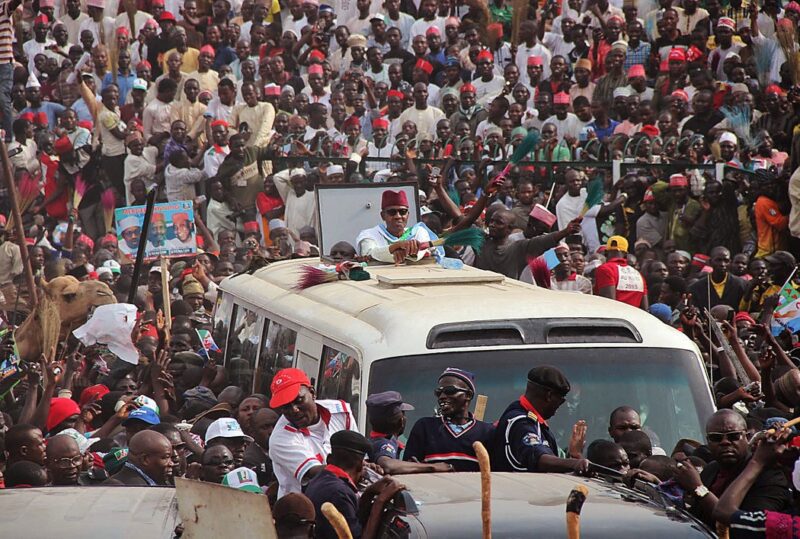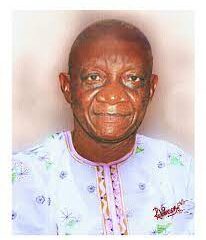National Issues
Is Nigeria on the Verge of Cannibalism? Hunger, Anger, Unbearable Cost of Living, Human Trafficking, and Desperation Amidst Ethnic Leadership Bias and Weedy Governance -By John Egbeazien Oshodi
In addition to consulting domestic experts, I encourage reaching out to scholars from beyond Nigeria’s borders. Global perspectives and experiences can offer valuable lessons and innovative solutions that may be applicable to our context. Leveraging international networks and partnerships can enhance our capacity for problem-solving and position Nigeria as a leader in addressing complex societal challenges.

In the face of rising living expenses, hunger, anger, and insecurity, worsened by ethnic bias, overpopulation, and ineffective leadership, the troubling phenomenon of Nigerians selling each other begs the question: what comes next? Could we witness the chilling scenario of people turning to cannibalism in desperation?
Since gaining independence, Nigeria has grappled with a complex array of challenges, including ethnic favoritism in governance, widespread hunger, escalating insecurity, and the ominous specter of societal breakdown. Despite promises of meritocracy and fair governance, successive administrations have perpetuated a troubling pattern of ethnic bias in appointments to key positions of power and influence. This pattern not only undermines public trust but also exacerbates existing socio-economic disparities, posing a grave threat to the stability and prosperity of the nation.
At the heart of Nigeria’s governance crisis lies the pervasive phenomenon of ethnic favoritism in leadership appointments. Throughout its history, Nigeria has witnessed a succession of administrations that have prioritized ethnic affiliations over merit and competence, perpetuating a cycle of patronage politics and nepotism. President Muhammadu Buhari’s tenure stands as a stark testament to this trend, characterized by appointments that disproportionately favored individuals from his Fulani Muslim Northern ethnic group.
Tinubu’s appointments in critical roles exemplify a broader issue within Nigerian governance. While individuals may boast commendable credentials and experience, their close ties to the political elite inevitably provoke valid concerns regarding transparency, impartiality, and the lingering perception of ethnic-based appointments.
It’s undeniable that there likely exist more qualified and competent candidates for these positions who are not tethered to political affiliations within the current administration. This reality underscores the need for a critical examination of the selection process and a commitment to meritocracy and fairness.
However, it’s crucial to clarify that this critique does not intend to personally condemn individuals involved. Rather, they serve as emblematic figures of a broader societal trend that compromises democratic principles and equitable development. Addressing these concerns necessitates a deliberate shift towards prioritizing merit and competence above political connections and ethnic considerations.
Furthermore, the implications of these appointments extend beyond mere administrative decisions; they have far-reaching consequences for the socio-economic well-being of the Nigerian populace. By perpetuating a system of ethnic favoritism, the government perpetuates socio-economic disparities and undermines efforts to foster national unity and cohesion. Moreover, it sends a disheartening message to the Nigerian people: that advancement and opportunity are contingent upon political connections rather than individual merit and hard work.
In essence, these appointments serve as stark reminders of the urgent need to address the systemic issues of political favoritism and nepotism in Nigerian governance. To truly advance the principles of democracy and equitable development, it is imperative to prioritize meritocracy, transparency, and inclusivity in leadership appointments.
The ramifications of political favoritism in leadership appointments extend far beyond mere political maneuvering, permeating every facet of Nigerian society. One of the most pressing consequences is the exacerbation of hunger and insecurity, two interlinked challenges that continue to plague the Nigerian populace. Despite promises of improved security and economic prosperity, Nigerians continue to grapple with widespread hunger, steep prices, and escalating levels of violence, including kidnappings and killings, even when ransom payments are made.
The failure to address these pressing issues underscores the fundamental flaw in prioritizing political affiliations over merit and competence in governance. Even in the face of proposed solutions, such as increased food imports and mobilization of security forces, the root cause of political favoritism in appointments remains unaddressed.
As long as political considerations continue to dictate leadership decisions, public trust in governance will erode, perpetuating a cycle of distrust and disillusionment among the Nigerian people. Moreover, Nigeria’s status as a highly populated country exacerbates these challenges, amplifying the strain on already limited resources. The issue of overpopulation looms large, exacerbating hunger, unemployment, and social unrest. Without effective leadership to address these underlying issues, the nation faces a perilous future characterized by deepening crises and heightened instability.
Nigeria teeters on the edge of societal collapse. With hunger tightening its grip on the nation and desperation escalating to unprecedented levels, the horrifying possibility of resorting to desperate measures emerges as a haunting specter, ominously clouding our collective future. It is paramount to emphasize that these are scenarios we fervently strive to evade in our current era. No amount of government crackdowns on innocent protesters through state instruments can halt this advancing peril.
History offers cautionary tales, where individuals resorted to consuming human flesh to survive. While such scenarios may seem distant or unthinkable, the reality is that starvation can lead to desperation and madness, driving people to unthinkable extremes. Moreover, the proliferation of violence and communal conflicts further compounds the risk of societal breakdown, creating a volatile environment ripe for exploitation by opportunistic actors.
In light of these sobering realities, it is imperative to prioritize meritocracy and competence in leadership appointments. Only by selecting leaders who possess the capability to navigate crises with integrity and skill can Nigeria hope to overcome its challenges and pave the way towards a brighter future. The stakes are high, and the time for change is now.
It’s time to ask critical questions: Must we continue to adhere to the sentimental and historically entrenched practice of political-based appointments? Reflect on the performance of past leaders appointed on political grounds—has it truly resulted in improved economic and security outcomes? What if, instead, we were to break away from this pattern and appoint individuals solely based on their skills and expertise, without any prior personal connections? Consider the potential impact on the nation’s economy and security under such a system.
Let us take proactive measures to address the systemic issues plaguing Nigeria by harnessing the expertise available within the country’s universities and other higher institutions. It is imperative to seek out experts with peer-reviewed publications in critical areas such as security, law enforcement, economics, finance, and beyond. By tapping into the wealth of knowledge and experience within academia, we can access evidence-based solutions to the complex challenges facing our nation.
Moreover, collaborating with academia fosters a spirit of inclusivity and transparency in governance. By involving scholars in the decision-making process, we demonstrate a commitment to meritocracy and intellectual rigor. This approach also helps to build trust and credibility among the public, as it signals a willingness to listen to diverse viewpoints and prioritize the common good over political considerations.
In addition to consulting domestic experts, I encourage reaching out to scholars from beyond Nigeria’s borders. Global perspectives and experiences can offer valuable lessons and innovative solutions that may be applicable to our context. Leveraging international networks and partnerships can enhance our capacity for problem-solving and position Nigeria as a leader in addressing complex societal challenges.
By engaging in a collaborative effort with academia, Nigeria has the profound opportunity to tap into the wealth of knowledge and expertise within its universities and research institutions. Leveraging the collective wisdom of the brightest minds can drive meaningful and transformative change in the country. This pivotal moment offers a chance to lay the foundation for a future where meritocracy, expertise, and evidence-based policymaking serve as the bedrock of governance, leading to prosperity, security, and social justice for all Nigerians.
Every day, you find that Nigerians are crying about increasing poverty and hardship, people are committing suicide, people are selling their children to feed themselves. The scarcity of currencies including dollars, pounds, and naira exacerbates the situation. Students are resorting to selling their property, and drug prices have become exorbitant. Deadly insecurity, kidnappings, killings, and ransom demands from kidnappers have become rampant. Citizens can’t defend themselves as ammunition ownership is strictly limited or not even allowed.
In the midst of all these hardships and insecurity, the leaders have the protection of police with guns guiding them. Soon, the people will have to act, no matter what. If these conditions persist without adequate response from leadership, the populace may reach a breaking point and take matters into their own hands.
The consequences of inaction in addressing Nigeria’s challenges are grave and far-reaching. Ignoring the harsh realities of insecurity, starvation, and desperation risks driving individuals to unthinkable acts of violence and depravity. As leaders, it is a solemn duty to confront these challenges head-on and implement solutions addressing the root causes of the nation’s suffering. Failure to act decisively risks not only the stability of the nation but also the essence of its humanity. Reaffirming a commitment to democracy and justice is crucial, working tirelessly to ensure every Nigerian can live in dignity, security, and hope.
While President Bola Tinubu might not bear sole responsibility for these issues, they have persisted across successive administrations. However, under his leadership, the continuation of ethnic-based appointments exacerbates these challenges. This perpetuation of nepotism and favoritism hampers governance effectiveness and deepens existing socio-economic disparities.
Engaging with experts from various disciplines provides invaluable insights on tackling issues like insecurity, economic instability, and social unrest. These scholars bring rigorous research methodologies and a deep understanding of societal dynamics, informing evidence-based policies that foster inclusivity and transparency. Involving scholars in decision-making demonstrates a commitment to meritocracy and intellectual rigor, prioritizing the common good over political considerations.
Acknowledging that these challenges have historical and systemic roots, it’s crucial to address them effectively. Tinubu’s administration, like its predecessors, must prioritize meritocracy and competence in leadership appointments, transcending political affiliations and ethnic considerations. Only through such measures can Nigeria begin to tackle the root causes of its societal woes, paving the way for a more inclusive and prosperous future.

John Egbeazien Oshodi Professor John Egbeazien Oshodi, born in Uromi, Edo State, Nigeria, is an American-based police and prison scientist, forensic psychologist, and legal psychologist. He’s a government advisor on forensic-clinical psychological services in the USA and the founder of the Dr. John Egbeazien Oshodi Foundation for Psychological Health. With a significant role in introducing forensic psychology to Nigeria through N.U.C. and Nasarawa State University, he’s also a former Secretary-General of the Nigeria Psychological Association. He’s taught at esteemed institutions like Florida Memorial University, Florida International University, Nova Southeastern University, and more, and is currently an online faculty member at Weldios University, Nexus International University, and Walden University. John.Oshodi@mail.waldenu.edu


















